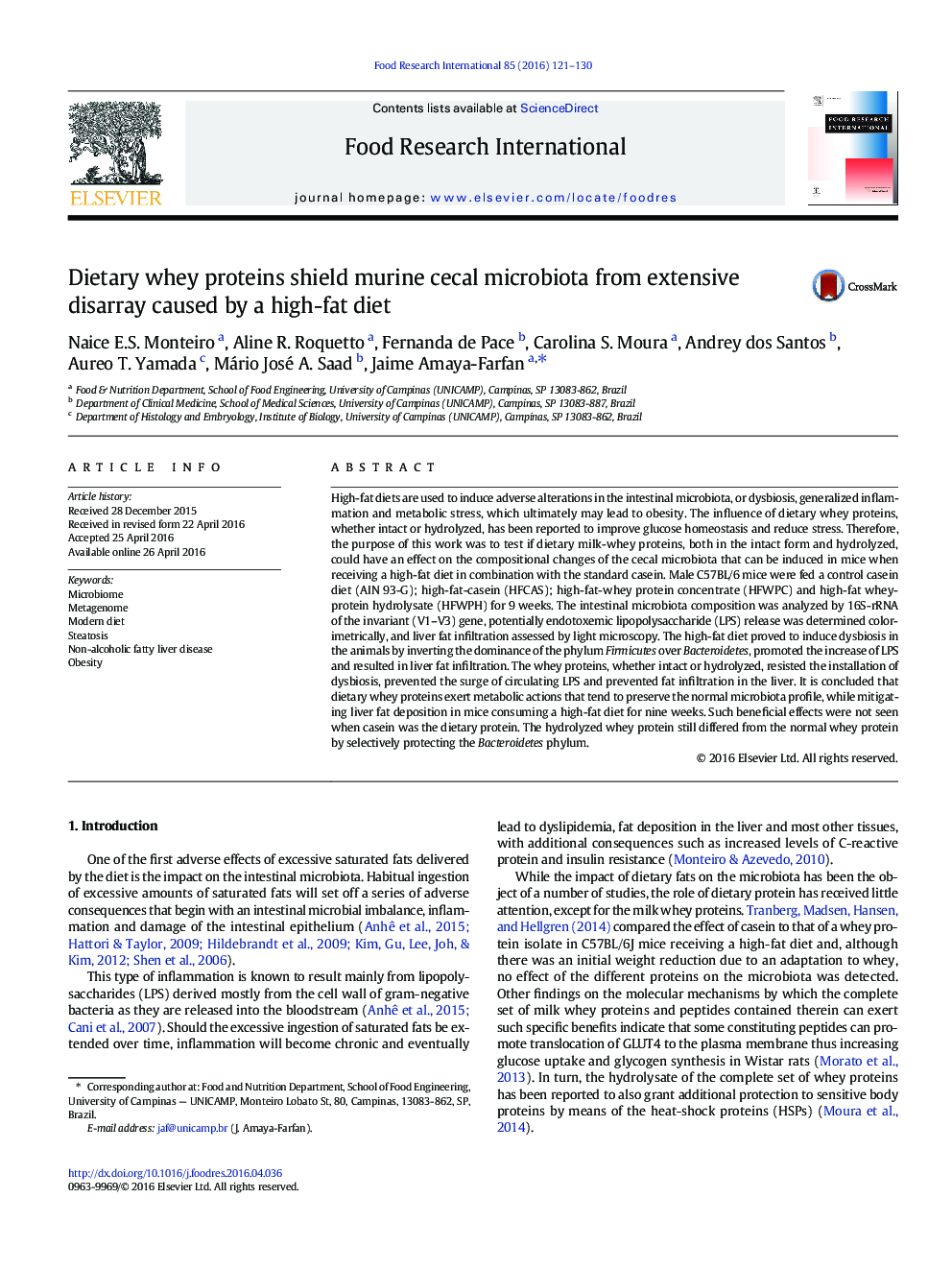| کد مقاله | کد نشریه | سال انتشار | مقاله انگلیسی | نسخه تمام متن |
|---|---|---|---|---|
| 4561047 | 1628463 | 2016 | 10 صفحه PDF | دانلود رایگان |
• Whey proteins grant gut microbes resistance from injury caused by a fatty diet.
• Casein proteins offer low protection from adverse effects on microbiota profile.
• Pre-hydrolyzed whey protein may protect gram-negative Bacteroidetes from Death.
High-fat diets are used to induce adverse alterations in the intestinal microbiota, or dysbiosis, generalized inflammation and metabolic stress, which ultimately may lead to obesity. The influence of dietary whey proteins, whether intact or hydrolyzed, has been reported to improve glucose homeostasis and reduce stress. Therefore, the purpose of this work was to test if dietary milk-whey proteins, both in the intact form and hydrolyzed, could have an effect on the compositional changes of the cecal microbiota that can be induced in mice when receiving a high-fat diet in combination with the standard casein. Male C57BL/6 mice were fed a control casein diet (AIN 93-G); high-fat-casein (HFCAS); high-fat-whey protein concentrate (HFWPC) and high-fat whey-protein hydrolysate (HFWPH) for 9 weeks. The intestinal microbiota composition was analyzed by 16S-rRNA of the invariant (V1–V3) gene, potentially endotoxemic lipopolysaccharide (LPS) release was determined colorimetrically, and liver fat infiltration assessed by light microscopy. The high-fat diet proved to induce dysbiosis in the animals by inverting the dominance of the phylum Firmicutes over Bacteroidetes, promoted the increase of LPS and resulted in liver fat infiltration. The whey proteins, whether intact or hydrolyzed, resisted the installation of dysbiosis, prevented the surge of circulating LPS and prevented fat infiltration in the liver. It is concluded that dietary whey proteins exert metabolic actions that tend to preserve the normal microbiota profile, while mitigating liver fat deposition in mice consuming a high-fat diet for nine weeks. Such beneficial effects were not seen when casein was the dietary protein. The hydrolyzed whey protein still differed from the normal whey protein by selectively protecting the Bacteroidetes phylum.
Figure optionsDownload as PowerPoint slide
Journal: Food Research International - Volume 85, July 2016, Pages 121–130
